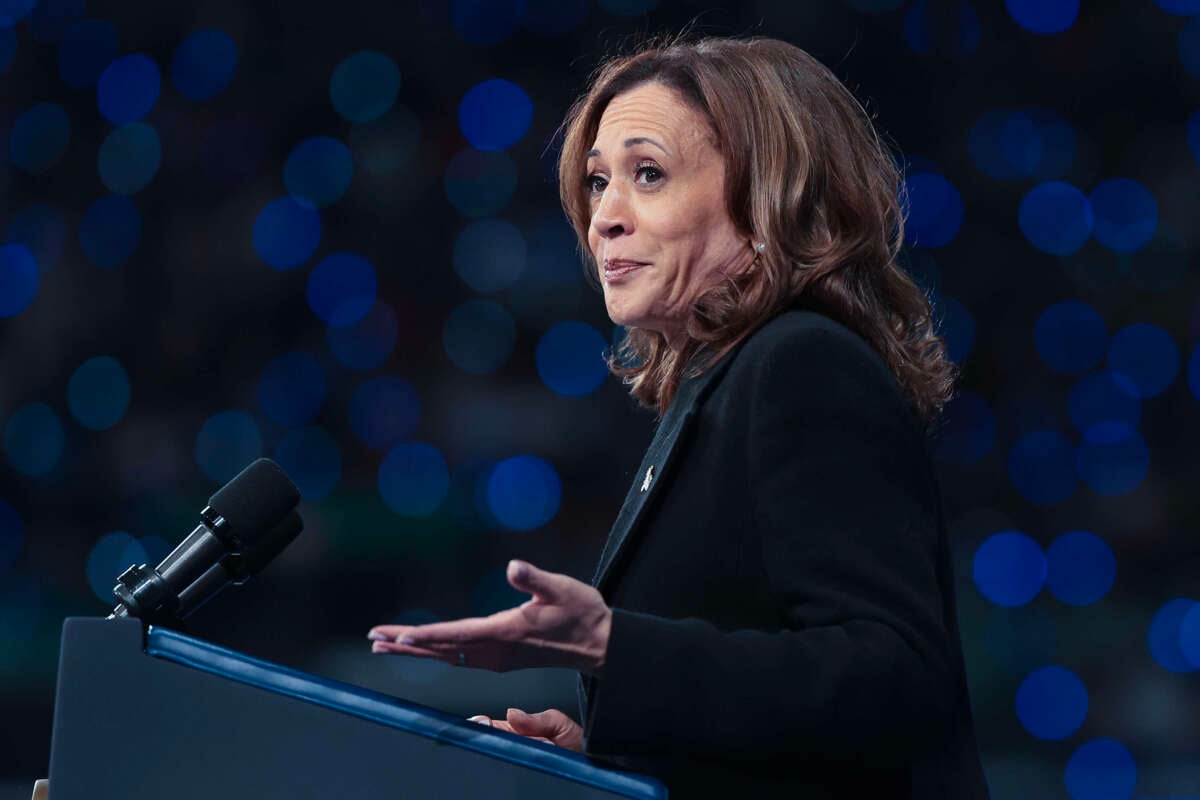Honest, paywall-free news is rare. Please support our boldly independent journalism with a donation of any size.
On Monday, Vice President Kamala Harris announced her support for legalizing recreational marijuana use on a federal level.
The Democratic nominee for president announced her views on the subject during a guest appearance on the sports podcast “All the Smoke.”
“I just think we have come to a point where we have to understand that we need to legalize it and stop criminalizing this behavior,” Harris said.
The idea of legalizing marijuana is not “new” for her, she said.
“I have felt for a long time we need to legalize it,” Harris explained.
Harris also discussed how the criminalization of selling and using the drug has disproportionately targeted Black communities. Although Black people use the drug at the same rate as white people, they are arrested for marijuana-related offenses at a rate that is four times higher.
“We know historically what [criminalization of marijuana] has meant and who has gone to jail,” Harris noted.
Although Harris has expressed support for legalizing recreational cannabis use in the past years, she was ambivalent about legalization as recently as 2016.
As a U.S. senator in 2018, Harris, alongside Sen. Cory Booker (D-New Jersey), co-sponsored legislation that would have expunged past cannabis-related offenses and legalized the drug for recreational use. She expressed support for similar moves in 2020 as a candidate for president during the Democratic primaries.
In 2016, however, as a candidate for senator, she took no position on marijuana legalization, even as voters in her home state of California were considering passing a ballot initiative to legalize the drug. Harris also campaigned against a similar measure in 2010 as a candidate for attorney general, stating that she supported medicinal use of marijuana but not legalizing recreational use.
As a district attorney in San Francisco, Harris’s office oversaw nearly 2,000 convictions for marijuana use, although in most cases individuals were not sent to prison upon being convicted.
Despite this history, Harris’s current stance on cannabis legalization goes beyond President Joe Biden’s action on the issue — earlier this year, his administration announced a plan to reschedule cannabis from a Schedule I designation (the most strictly regulated drugs, which are considered to have “no currently accepted medical use and a high potential for abuse”) to Schedule III, which are less regulated. However, that plan did not call for federal legalization.
Harris is also ahead of Republican candidate for president Donald Trump on legalization. While Trump has expressed that he will be voting for Florida to allow recreational use of the drug, he has not come out in favor of federally legalizing it, and has taken harsh anti-drug positions (including calling for the death penalty for drug dealers) that suggest he won’t be changing his mind on marijuana use at the national level anytime soon.
The vast majority of Americans support legalizing cannabis. A Gallup poll from last November, for example, found that 70 percent of voters backed full legalization of marijuana, while just 29 percent wanted the drug to remain illegal.
A terrifying moment. We appeal for your support.
In the last weeks, we have witnessed an authoritarian assault on communities in Minnesota and across the nation.
The need for truthful, grassroots reporting is urgent at this cataclysmic historical moment. Yet, Trump-aligned billionaires and other allies have taken over many legacy media outlets — the culmination of a decades-long campaign to place control of the narrative into the hands of the political right.
We refuse to let Trump’s blatant propaganda machine go unchecked. Untethered to corporate ownership or advertisers, Truthout remains fearless in our reporting and our determination to use journalism as a tool for justice.
But we need your help just to fund our basic expenses. Over 80 percent of Truthout’s funding comes from small individual donations from our community of readers, and over a third of our total budget is supported by recurring monthly donors.
Truthout has launched a fundraiser to add 340 new monthly donors in the next 5 days. Whether you can make a small monthly donation or a larger one-time gift, Truthout only works with your support.
